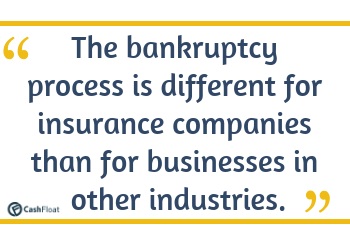Navigating Company Administration: Comprehending the Process in the UK
Navigating Company Administration: Comprehending the Process in the UK
Blog Article
Exploring the Effect of a Business Going Into Management

Immediate Effect On Workflow
When a business goes right into administration, the prompt effect on its operations can be substantial, affecting numerous elements of its operating. Partners and suppliers may become reluctant to involve with the service, influencing the supply chain and potentially causing hold-ups or shortages in crucial resources.
Financially, the firm may deal with constraints on its investing and investment decisions, as managers take control to assess the circumstance and determine the finest strategy. This can cause cash flow obstacles, making it difficult to meet commitments such as paying wages or clearing up billings promptly - what happens when a company goes into administration. Furthermore, the track record of business might suffer, as information of administration spreads, possibly leading to a loss of client trust fund and commitment
Financial Ramifications for Stakeholders
The immediate operational difficulties encountered by a business going into administration have considerable monetary implications for stakeholders entailed in the firm's affairs. Shareholders typically bear the burden of economic losses, experiencing a decrease in the worth of their financial investments as the firm's supply rates drop. Staff members encounter unpredictabilities concerning their salaries, benefits, and job safety, with prospective layoffs or decreased compensation plans looming. Providers may encounter payment hold-ups or perhaps non-payment for items or services offered, impacting their cash circulation and total security. Furthermore, financial institutions encounter the threat of getting only a portion of the cash owed to them, bring about possible losses and impacting their own financial wellness. On the various other hand, clients might likewise be influenced by an organization going right into administration, facing disturbances in service, warranty concerns, or the loss of pre-paid services or down payments. These monetary implications highlight the causal sequence that a business getting in administration can carry different stakeholders, emphasizing the value of proactive threat monitoring and strategic planning.
Legal Responsibilities and Responsibilities
Browsing the detailed web of lawful commitments and responsibilities is an essential undertaking for all parties entailed when a company gets in administration. The administrators selected to look after the process have a responsibility to act in the finest passions of the financial institutions. They have to adhere to lawful needs, such as preparing records why not check here on the company's economic scenario and performing meetings with financial institutions to discuss the management process.
Workers additionally have lawful civil liberties that have to be upheld throughout management. Relying on the situations, they might be entitled to redundancy pay, notification pay, and various other benefits. It is crucial for administrators to comply with employment legislations and make certain that employees are treated rather throughout the process.
Lenders play a substantial role in administration also. They have the right to be notified concerning the firm's economic standing, participate in financial institutions' meetings, and vote on crucial choices. Administrators need to connect transparently with financial institutions and comply with lawful methods to guard their passions.
Possible for Organization Restructuring
In the world of service administration, discovering the potential for restructuring holds significant assurance for rejuvenating a struggling firm. When a company encounters monetary distress or functional difficulties, reorganizing provides a critical method to resolve underlying problems and place the company for future success. By reflecting on the business structure, functional processes, and economic techniques, an organization can execute adjustments that enhance effectiveness, lower expenses, and enhance total performance.
One secret facet of business restructuring is determining and addressing ineffectiveness within the company. This may include simplifying processes, reapportioning resources, or reassessing the service or product offering to better line up with market needs. In addition, restructuring can involve renegotiating contracts, basics financial obligation commitments, or lease agreements to improve capital and lower economic strain.
Additionally, reorganizing gives a possibility to review leadership functions, obligations, and decision-making procedures to make certain effective governance and accountability. By executing a well-thought-out restructuring strategy, an organization can browse tough times and emerge stronger and much more durable in the open market landscape.

Implications for Market and Market
Thinking about the wider ramifications for sector and market characteristics, it comes to be noticeable that an organization undertaking restructuring can cause ripple results that resound throughout the affordable landscape. When a company goes into administration, it can bring about boosted competition as various other firms seek to load the space left by the struggling organization. This elevated competition can cause cost battles, advancement drives, or mergers and acquisitions as firms jostle for market share.
Moreover, the collapse of an organization can likewise impact providers and companions within the sector - what happens when a company goes into administration. Suppliers might deal with payment delays or also defaults, affecting their very own economic stability. Collaborations that were reliant on the now-struggling organization may require to be reviewed or renegotiated, resulting in more disruptions in the marketplace community
Final Thought

When a business goes right into administration, the immediate effect on its operations can be substantial, impacting various elements of its functioning.The prompt operational obstacles dealt with check my site by a business getting in administration have significant economic ramifications for stakeholders entailed in the company's events (into administration). These monetary ramifications highlight the surge effect that an organization entering management can have on various stakeholders, emphasizing the significance of proactive threat administration and critical planning
When a company goes right into administration, it can lead to boosted competition as various other companies seek to load the space left by the struggling business.In final thought, the influence of a company going right into management is considerable, influencing operations, finances, lawful obligations, and possibly leading to restructuring.
Report this page